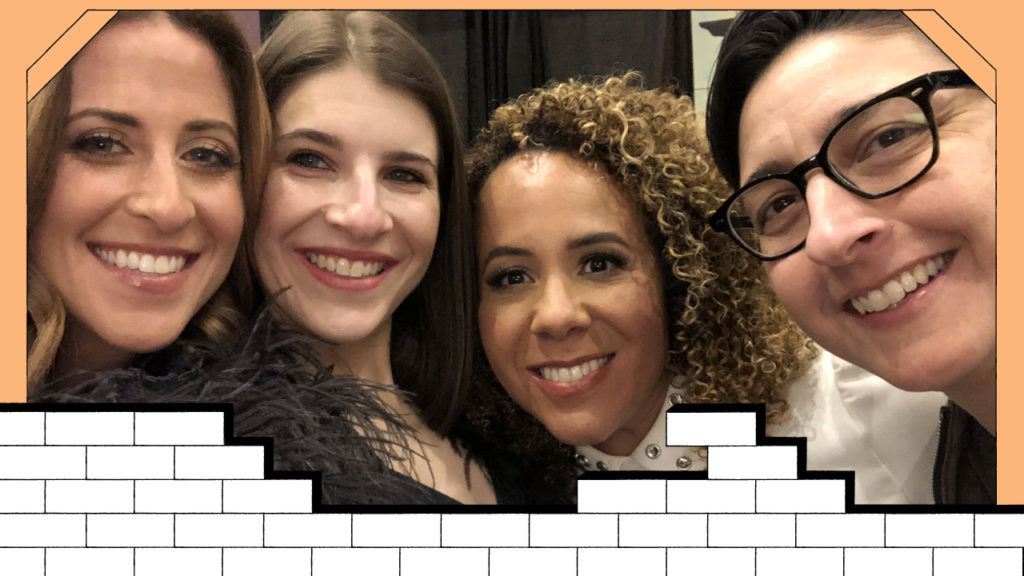At ‘Women are Building the Brands We’ve Always Wanted,’ panelists gave their perspectives on why consumer connection is critical and why women should be leading marketing efforts behind consumer brands.
The panel was moderated by Jamie Gilpin, chief marketing officer at Sprout Social Inc. who shared statistics to support why consumer connection is essential, especially the relationship that brands have with women.
“We look to the trends. It’s more than a feeling. Seventy-to-eighty percent of consumer goods are purchased by women [while] 50 percent of traditional male products are purchased, or driven by women. It’s not just about filling a functional need, and that’s what a lot of brands have done in the past. It’s about [the] connection [. . .] 68 percent of female consumers say they want to connect with a brand.”
Gilpin put it bluntly: “The stakes are high for us marketers. To feel connected to a brand, female consumers, over half of them say, ‘we feel connected to a brand when they understand us and our desires.’”
Also included in the panel were Amanda Clark, head of NA development/senior vice president of Taco Bell, Rachel Blumenthal, founder & CEO of Rockets of Awesome and AJ Hassan, VP, executive creative director at R/GA.
“Time’s are a-changing,” said Amanda Clark, reflecting on brand evolution over the past few years. “I think brands are embracing a lot of the qualities that we as a society label as traditionally female [. . .] those characteristics, we talk about them as transparency, connectedness, honesty, emotion.”
In the case of Taco Bell, this comes through in their brand voice across social and the transformation of retail spaces into places where people want to stay.
“We never try to talk down to people,” she said. “If you look at Super Bowl ads, and I look at my own industry [. . .] maybe we had some busty women selling burgers, tacos. That’s not a good thing. We’ve got to progress.”
But, there’s a wrong way to progress.
“You have to stay true to you are [. . .] OK, Gilette. I think they took a hard left [but] you still have to be authentic to your brand voice.”
AJ Hassan, who led the Always campaign “Like A Girl” for R/GA, tied its success to the team that created it—and a divergence from the brand communication of confidence as the ability “to wear white pants.”
“Because it was rooted in something that’s so visceral for these girls, we needed to create a work that was truly representative of a woman’s point of view, and really bring in partners to do that in the most authentic way, and also to manifest a piece of work that [. . .] let the girls use their own voices to share those experiences.”
Hassan also elaborated on the need for connection through a physical brand space, brick-and-mortar.
“I think as much as people love the convenience of Amazon Prime there’s still a craving to touch materials, to see things in person, and I think the brands that we’re going to see succeed are thinking about creating those experiences.”
“We’ve seen the whole generation of millennials, 80 percent of them being belief-driven buyers, because of technology [. . .] they’ve grown up living in their phones. And there’s a power in the ability to keep up with everyone you’ve ever known on Facebook, but there’s also a degree of anonymity that’s ironic in that it does get to this lack of connection. That’s what brands are really looking at with technology: to create more meaningful connections, to bring more purpose, to understand my audience,” said Hassan.
“Who do you make friends with? You make friends with someone who gets you, who can have a conversation with you, who understands you.”
While the panelists agreed that there has been some progress in terms of representation, the statistics are startling, as Gilpin points out.
“Only 28 percent of CMO’s are females, and only 30 percent are leaders in the agency world.”

